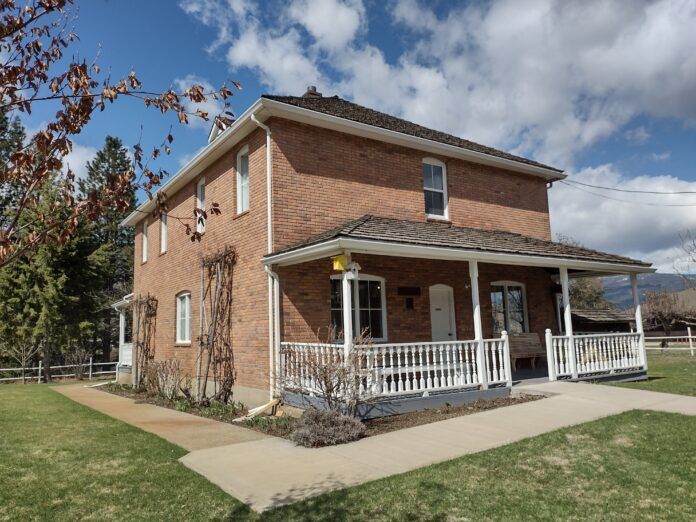A New York Times story published this week looks at the local Doukhobor community and in particular how they have been affected by the war in Ukraine. It is the first feature about Doukhobors to appear in the newspaper in over 30 years. We caught up with reporter Dan Bilefsky, who visited Castlegar and Grand Forks this spring, “speaking to members of the Doukhobor community over countless bowls of homemade borscht.”
How did you become interested in this story?
Several years ago, having spent three decades living in Europe, I returned back to Canada and started working as a correspondent for the New York Times. Someone in British Columbia in passing mentioned the Doukhobors to me, the interesting history of the community’s origins in Russia and of course invariably the small radical sect who were burning houses back in the 1920s. I found the history of the community fascinating and became interested in writing about the Doukhobors and put it in my mental file cabinet for the future.
Did the war in Ukraine bring it back to the fore, or why now?
Exactly. Every journalist, especially for a global newspaper, has to ask themselves “Why here, why now?” The war in Ukraine gave the story a new hook because historically there had always been a desire within the Doukhobor community among some members to return to Mother Russia. I was curious how the war in Ukraine, given the Doukhobors’ manifest pacifism, was influencing things and affecting the community.
When you got here who did you talk to and what did you find?
I tried to talk to as many people as possible from different generations, genders, and branches of the community. [USCC executive director] J.J. Verigin was incredibly welcoming to me and was my main go-to person for every aspect of this story. But I spoke to members of the older generation, to Russian teachers, to people who grew up in Castlegar and have since moved to Vancouver to become video game makers. I tried to get a real spectrum of views across the community to try and have a sense of some of the issues being raised by the war and modernity.
On the war, you heard some interesting things, and some unfortunate things.
Yes, J.J. told me some members of the community had been accosted verbally when they were out shopping because someone overheard them speaking Russian and thought they were Russians. He explained there had been some xenophobia against the Doukhobors because of the war in Ukraine and how this came across the backdrop of historical persecution against the Doukhobors going back decades, including against him.
I think you are the first person to report on the 2021 census figures that showed the number of people identifying as Doukhobors continues to decline.
The story mentioned there are an estimated 30,000 people in Canada of Doukhobor descent, or have Doukhobor roots, so the number is not insignificant. But the actual number of people who self-identified as Doukhobors on the last census was quite small. [1,675 in 2021, down from 2,290 in 2011 and a peak of 16,898 in 1941.] Again, that seems to be a reflection of historical discrimination that might make people wary of saying their origins.
Once you collected your interviews, how did you figure out what angle to take?
Honestly, the history of the Doukhobors of is so extraordinary and fascinating it’s worthy of a Tolstoy novel or maybe several Tolstoy novels, not an 1,100-word story. But that’s the limit I was faced with. Faced with those constraints, the two things that popped out at me when I was reporting was one, how the war in Ukraine was affecting the community and causing soul searching.
And the second thing was how the Doukhobors are coping in the 21st century with the competing forces of assimilation, the desire of the younger generation to go to cities. As I put it in my story, the younger generation being more drawn to TikTok than Tolstoy. And the need and desire to preserve the Russian language. Those two themes jumped out at me. I decided to focus as much as possible on that.
What sort of reaction have you received?
I’ve received a lot of emails and Instagram messages. One thing that’s very striking is in Canada we’re such a regionalized country and I think a lot of people outside of British Columbia have never heard of the Doukhobors, including readers outside of Canada and the United States. I’ve had readers write to me saying “How absolutely fascinating to learn about this Russian sect with interesting origins.” People hadn’t heard of them before.
On a personal note, I was struck by the communitarian spirit among the Doukhobor community. Everyone was so welcoming. People invited me into their homes for dinners and lunches of borscht. I felt a real spirit of communitarianism that will stay with me long after I reported that story.
The other thing that jumped out was the extraordinary talent of singing among the Doukhobor community, both in traditional psalms and hymns, but also Doukhobor choirs. There’s a particular rendition of Leonard Cohen’s Hallelujah in Russian that the choir I met did which I posted on Instagram. It is remarkable. The singing side of the community is just amazing.




